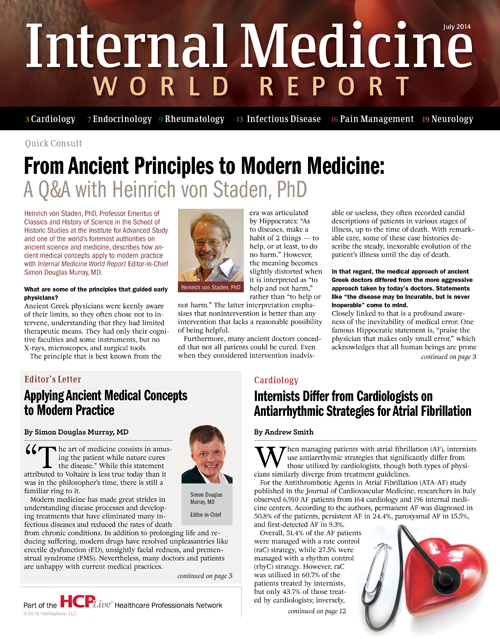New Combination Therapy Cures Chronic Hepatitis C in Co-infected HIV Patients
A team of researchers has discovered a new course of treatment that could be a major step in curing those co-infected with hepatitis C virus and HIV.

A team of researchers has discovered a new course of treatment that could be a major step in curing those co-infected with hepatitis C virus (HCV) and HIV.
In a recent study published in JAMA, Mark Sulkowski, MD, Medical Director of the Johns Hopkins Infectious Disease Center for Viral Hepatitis, and his colleagues reportedly found a combination of drugs that cured chronic HCV in a majority of HIV patients, including those who are the most difficult to treat.
“In many settings, HCV is now a leading cause of death among HIV co-infected patients,” Sulkowski noted in a statement. In fact, nearly one-third of HIV patients in the United States have also been diagnosed with HCV, though that number is just a fraction of the nearly 7 million people around the world who have received both diagnoses.
Prior to the use of a pair of experimental, oral antiviral drugs known as daclatasvir and sofosbuvir, the study authors said many patients showed poor tolerability to previous treatments, including injections of interferon and other medications that can interact with antiretroviral therapy (ART) for HIV.
In the phase 3 trial, a total of 223 HIV-1 patients chronically co-infected with HCV were treated with the new combination therapy. Patients with HCV genotype 2 or 3 who were treatment-naïve received 12 weeks of treatment, while those with HCV genotype 1 — as well as those who were treatment experienced with HCV genotype 2 or 3 — were treated for 24 weeks.
At the 12-week mark, the patients were again tested for HCV to determine the effectiveness of the daclatasvir and sofosbuvir combination therapy. The final data showed that 76% of patients with genotype 1, 88% with genotype 2, and 67% with genotype 3 were cured.
“We’ve always termed this to be ‘sustained virologic response’ (SVR),” Sulkowski said. “But we now know that means HCV has been cured.”
The treatment-experienced patients had even better results, as 92% of patients with HCV genotype 2 and 94% of patients with HCV genotype 3 were reportedly cured. Although 7 patients withdrew from the study due to adverse events, no effects on the patients’ HIV or its treatment were observed.
“The likelihood that a patient with chronic, long-standing HCV infection would have spontaneous cure is near zero,” Sulkowski noted. “So, if these patients had not been treated, none would have been cured.”
Because of the low known efficacy rates and poor tolerability rates associated with the current standard-of-care treatment that involves weekly interferon injections and twice-daily oral ribavirin, neither the investigators nor the potential participants were willing to follow that regimen.
“Doctors and patients alike recognize the idea that it would be difficult, if not impossible, to randomize clinical trial participants to an injectable treatment (interferon) that’s linked to many side effects versus an oral treatment (sofosbuvir plus ribavirin),” Sulkowski said.
Sulkowski reported that he is a paid Scientific Advisory Board member for Gilead Sciences, which developed sofosbuvir and funded the study.
